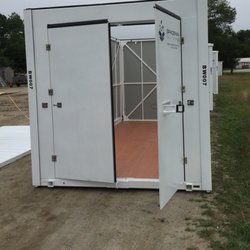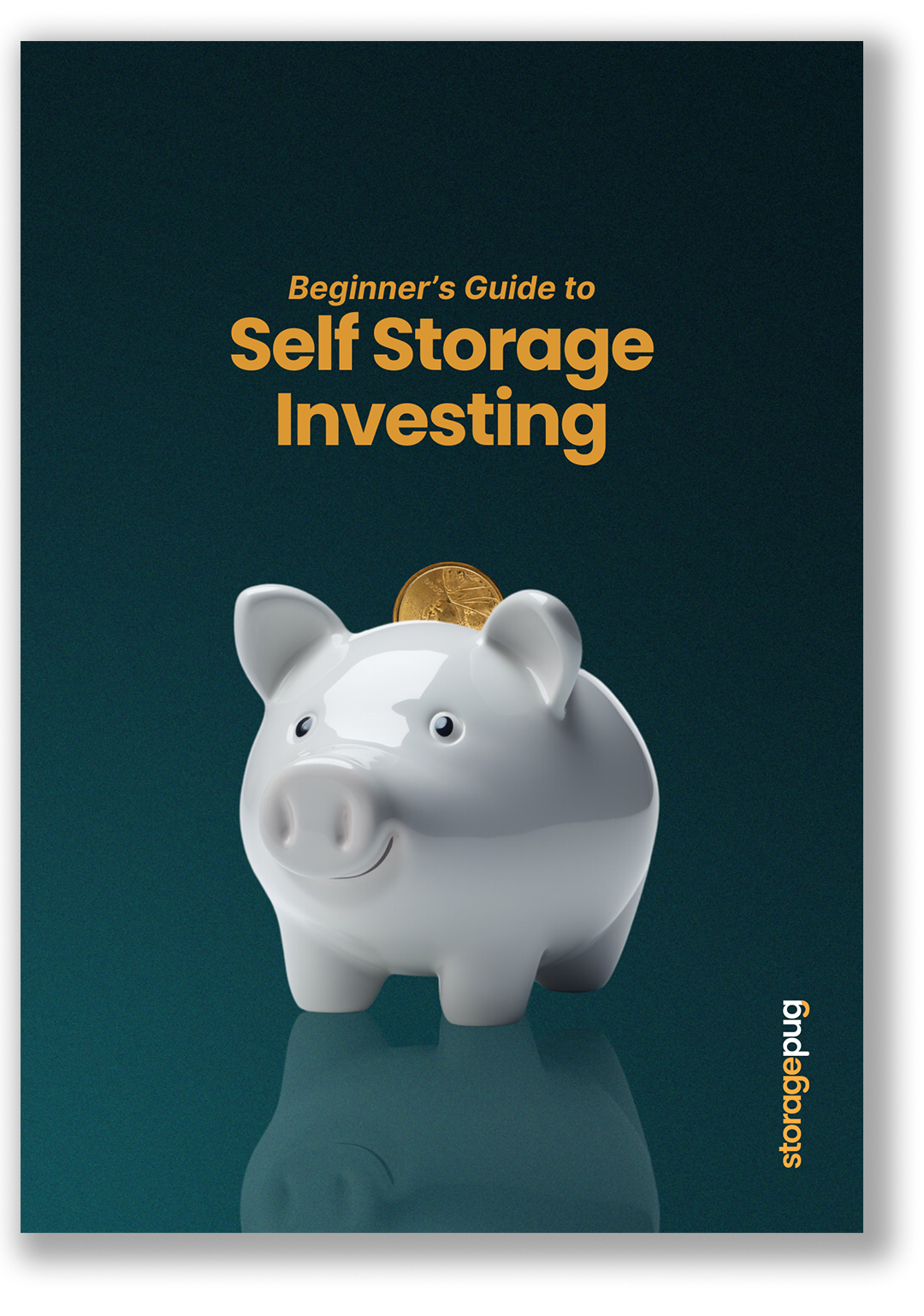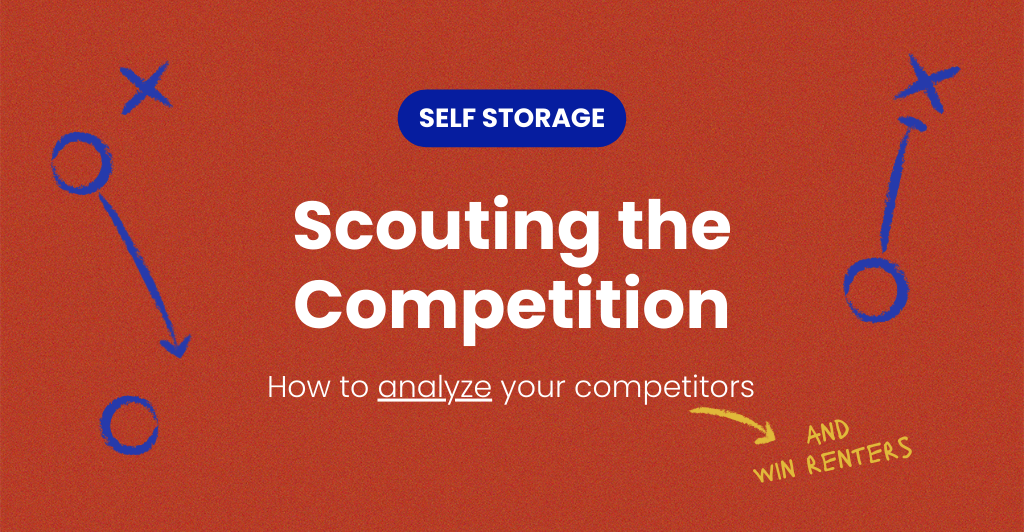Portable storage boomed in the last decade because it solves a problem that standard storage facilities can’t touch.
The portable storage industry grew by 2.6% to $8 billion in revenue in 2018 - because of this growth, many self storage operators are considering whether adding portable storage might grow their business.
Can portable storage make your business stand out, or is it a money sink that won’t pay for itself?
Running a portable self storage business is very different from a traditional self storage one. Not only do you need an entirely separate set of storage containers, but you need infrastructure to deliver them to your customers. Luckily, it’s also very scalable - so your portable storage investment doesn’t have to start off massive.

You’ll also need a way to book and schedule rentals. A standard self storage PMS and website won’t have that functionality, so you’ll have to either do it all by hand (which requires higher labor costs) or find a separate automation function.
If you’re able to run the business efficiently, you still need to find enough demand to make your new venture profitable. In this article, we’ll talk about how you can turn portable self storage into a money-making enterprise!
What Is Portable Storage?
Portable storage is a business model that delivers small storage units to customers, rather than having the customers bring their possessions to a storage facility.

Portable self storage has many advantages over traditional storage:
- Increased range - with traditional storage, the majority of your customers will come from within a few miles of your facility. With portable storage, you can serve a much larger radius around your business, increasing your customer base.
- More flexibility - when adding portable storage, you can start small and grow as your demand grows. You can also easily adjust the areas you serve, your terms of rental, and other facets of your business to match your customers’ needs.
- Larger premiums - while delivering a portable storage unit to a customer is going to cost you a lot more than renting out a traditional storage space, you can also charge significantly more for the added convenience you’re bringing!
Other positives include less competition, lower start-up costs, and marketing benefits.
For owners of existing self storage facilities, investing in portable storage can help extend your brand, expand your customer base, differentiate you from the competition, and act as a moving billboard for your facility.
The biggest drawback of adding portable storage is the attention required by daily operations - scheduling pick-up and delivery times, organizing your employees, insurance for moving vehicles, commercial drivers’ licenses, etc.
These factors will draw on your time, but they’ll also draw on your other resources.
Investing in Portable Storage
There are three main ways to start offering portable self storage in your community. Which one is best for you will depend on numerous factors, including your budget, your appetite for a challenge, and your community.
Buy a Franchise
Purchasing a portable storage franchise provides name recognition, credibility, and resources for initial business operations. You’ll also get access to support that won’t be available if you strike out on your own.
On the other hand, you’ll have to invest a significant chunk of money as a franchise fee to franchise with one of these existing portable storage brands. These fees can be upwards of $75,000, with additional investment requirements to ensure the brand isn’t attached to a half-hearted attempt.
If you’re looking to add a small portable storage feature to your existing storage business, franchising is probably not the way to go. Your initial investment will be so large that portable storage will have to comprise a huge chunk of your business to turn a profit over the interest on your capital.
Portable storage franchise options include PODS, UNITS, 1-800-PACK-RAT, Big Box Storage, Smartbox Moving and Storage, and MyWay Mobile Storage.
Start From Scratch
If you think you’ve found a great niche demand for portable storage, you may want to start the business on your own! This requires less money (in most cases) than franchising, gives you the freedom to do whatever you want with your business, and lets you start smaller to test the waters.
You’re avoiding the franchising fees, which could instead be spent on growing your business. You also can tailor your business model to the exact needs you’ve found in your community.
The downside is that it may take longer to build a customer base. You won’t have the established brand name that the franchises offer, you won’t have a web presence easily available, and you won’t have all of your design choices already made.
So, by starting on your own, you’ll get freedom at the cost of established benefits. For some folks, that’s an easy choice to make. For some, the lack of support could be terrifying.
If you’re new to the industry or new to running a business, a franchise might be your best bet. If you’re an experienced storage owner, starting on your own might net you a bigger payoff.
Add To An Existing Self Storage Facility
Business owners with an existing facility have a leg up on those without - you’ve already got some experience, some brand recognition, and a place to house your portable storage business!
Obviously, you would only want to expand if your current business is doing fairly well. If your business doesn’t have a good reputation in the community, you may want to start fresh with a new name and new branding.
Adding on portable storage is cheaper than starting a new company, but you won’t be able to tack it on just by buying some shipping crates and a big truck.
Portable storage has many requirements that a standard facility can’t meet - especially an online scheduling and sales portal. You’ll have to add enough staff to answer calls, schedule pickups and dropoffs, and find someone who can regularly drive your portable storage vehicle. This will most likely require a special commercial driver's license, depending on the style of the truck and your location.
Start-Up Costs for Portable Storage
Before you take the plunge into a new business, you should consider all the different types of start-up costs you’re going to face.
The costs will depend on the business size, location, and resources you already have.
Owners of existing self storage facilities will have lower start-up costs because they won’t need to invest in land, branding, and some other expenses.
Typical start-up costs for portable storage include the following:

Containers
The containers are the most significant expense in starting a portable storage company.
Available in a wide variety of sizes and configurations, containers are typically 8 feet high and can range in length from 7 feet to 20 feet.
The majority of containers include a steel frame, steel and aluminum composite panels, roll-up doors, and a translucent plastic roof. Ensure that they are weather-proof so that they protect the contents inside while stored outdoors.
Container Lift System and Truck
A truck outfitted with some form of a container lift system is the second essential component of a portable storage business. The lift system must be able to lift fully loaded containers without tilting. It also must transport them securely.
Equipped trucks will be the foundation of delivery methods and pricing. You’ll either need a robust scheduling system or multiple trucks to ensure no customers need your truck at the same time.
A system that allows for fast and safe loading and unloading with minimal staff is essential. You’re selling convenience, so if your truck takes too long to load and unload, you’re losing a good bit of that value.
Land
Even though customers rent containers and place them at their site, a location is needed to store the containers and trucks between rentals.
Because containers can be stored outside, a building is not required. This makes a parking lot or easement a possible real estate opportunity.
Securing the area with fencing and security cameras is also a good idea to protect the investment. Be sure to know the local area's rules, regulations, and restrictions for zoning and transportation.
Franchise Fees
If you’re going to open a franchise of an existing portable storage brand, you’ll have to have a certain amount of money set aside before you even start. Depending on who you contract with, franchise fees could be negligible or massive - be sure you know what you’re buying with that money!
Franchise opportunities occasionally provide containers, tech, information, trucks, or nothing more than their branding.
Staffing
Unless you plan on doing everything yourself, you’ll have to hire staff to schedule and coordinate deliveries, drive the truck, answer the phone, and manage business operations.
You may be able to have a single, part-time employee. Or you may need several full-time employees. Regardless, you’ll need to have a budget set aside for paying them and a solid grasp of local employment law to ensure you don’t leave yourself vulnerable.
Legal and Insurance
You’ll need to have a lawyer with self storage experience to review your rental agreement, your liability insurance, business licenses, and all other legal necessities.
Consult your state self storage association to find experts that already know how to approach all these problems.
Software Management System
The software system used to manage the business is crucial as you’ll need to coordinate pick-ups and deliveries and bill multiple customers.
There will be many facets of your business that can be improved or automated using technology or software. Scheduling, billing, payment reminders, and more can all be automated with the right software, which frees you and your staff up to work on more customer-facing problems!
Marketing Plan
Your business won’t take off and grow if you don’t market it. Self storage marketing revolves around websites, and portable storage will as well.
More than a website, though, you need to create a great customer experience. Happy customers will refer you to their friends and family without you needing to offer referral rewards. Happy customers are more likely to rent with you again when they need storage.
Unhappy customers will do the opposite.
In modern marketing, the best way to create new customers is by harnessing your old customers. Make sure your Google Business Profile is set up, accurate, and useful. Put pictures of your service and your team on there. Be sure to respond to reviews - even bad ones.
Pay-per-click ads are a great way to generate some initial interest in your business too!

Conclusion
Portable storage can be a great way to expand your self storage business, but there are serious hurdles you'll need to plan for.
If you've got the funding, the licensure, the equipment, and the staff you need to run a good business, you'll still need to market your new business offerings and find the demand for your product.
Since portable storage is a niche industry, it may be hard to find automation tools to make your business more efficient. If you can make your business operate smoothly, though, you can provide a great service to your customers.
StoragePug is a modern marketing company for self storage. We create intelligent marketing websites that allow you to rent units & take payments through your facility's website.








![[BASICS] 5 Minute Data & Reports for Self Storage Featured Image](https://cdn.storagepug.com/hubfs/%5BBASICS%5D%205%20Minute%20Data%20&%20Reports%20for%20Self%20Storage.png)
